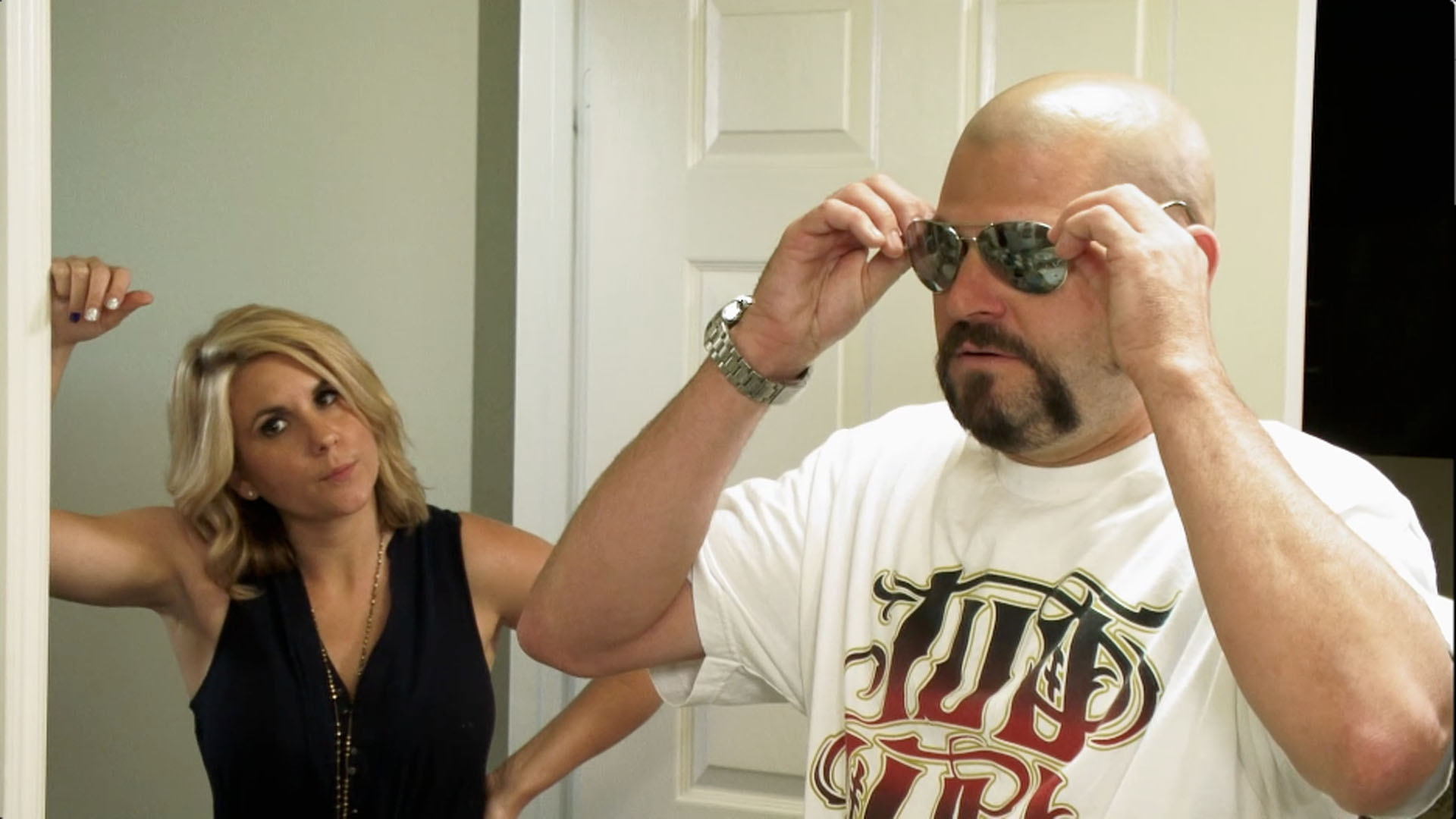Brandi Passante Nude Photos: The Truth Behind The Clickbait And Sensationalism
Listen up, folks. We’ve all been there—scrolling through social media or browsing the web when BAM! A headline grabs your attention like a lion pouncing on its prey. "Brandi Passante Nude Photos Leaked!" Sound familiar? But before you click, let me tell you something important. Not everything that glitters is gold, and not every clickbait headline is what it seems.
Let’s talk about the elephant in the room. Brandi Passante, a name that’s been tossed around cyberspace like a hot potato. Whether you’re a fan of hers or just stumbled upon her name while surfing the internet, chances are you’ve encountered some pretty scandalous headlines. But are these headlines based on truth, or are they just a clever marketing ploy to get clicks? That’s what we’re diving into today.
This isn’t just about Brandi Passante; it’s about understanding how media works in the age of sensationalism. Clickbait is everywhere, and it’s time we all learned how to separate fact from fiction. So, buckle up, because we’re about to take a deep dive into the world of digital drama, scandals, and the truth behind it all.
- Vega Moviesrs Your Ultimate Streaming Destination
- Hdhub4u Your Ultimate Guide To Entertainment And Beyond
Here’s a quick roadmap to help you navigate this article:
- Brandi Passante Biography
- Understanding Clickbait
- The Truth Behind the Headlines
- The Role of Sensationalism
- Privacy and Consent
- The Impact on Individuals
- Legal Implications
- How to Prevent Falling for Clickbait
- Conclusion: What You Can Do
- Sources and Further Reading
Brandi Passante: Who Is She?
Before we dive into the nitty-gritty of the scandalous headlines, let’s get to know Brandi Passante a little better. Who is she, and why has her name become such a buzzword on the internet?
Brandi Passante Biodata
Here’s a quick snapshot of Brandi Passante:
- 7 Moviesflix Your Ultimate Guide To Streaming Movies Like A Pro
- Brandi Passante Leaks The Untold Story You Need To Know About
| Full Name | Brandi Passante |
|---|---|
| Occupation | Content Creator, Influencer |
| Birthplace | United States |
| Age | Details Unavailable |
| Claim to Fame | Online Presence and Social Media |
Brandi Passante is a content creator and influencer who has built a substantial following on platforms like Instagram, TikTok, and YouTube. Her work primarily revolves around lifestyle, fashion, and entertainment. However, like many influencers, her name has been dragged into controversies, some of which are completely fabricated.
Understanding Clickbait: What Is It?
Clickbait isn’t a new phenomenon, but it’s become more sophisticated over the years. In simple terms, clickbait is a sensationalized headline or thumbnail designed to lure you into clicking on a link. The goal? To increase traffic, views, and ad revenue.
Think about it. How many times have you clicked on a headline only to find out it’s completely misleading? That’s clickbait in action. And guess what? It works. People are naturally curious creatures, and when we see a headline that promises something scandalous or shocking, we can’t resist the urge to find out more.
Why Do People Fall for Clickbait?
- Curiosity: We want to know what’s behind that scandalous headline.
- Fear of Missing Out (FOMO): No one wants to be left out of the latest gossip or news.
- Emotional Manipulation: Clickbait headlines often play on our emotions, whether it’s anger, excitement, or fear.
The Truth Behind the Headlines
Now, let’s talk about the elephant in the room: those "Brandi Passante Nude Photos" headlines. Are they real? The short answer is no. In most cases, these headlines are completely fabricated. They’re designed to generate clicks, plain and simple.
Here’s the deal. In the world of digital media, content creators and websites are always looking for ways to boost their traffic. And what better way to do that than by exploiting someone’s name or image? It’s a dirty trick, but it’s one that’s used all too often.
Why Are These Headlines So Effective?
These headlines tap into our innate curiosity and desire for scandal. We live in a world where privacy is becoming a luxury, and anything that hints at a breach of that privacy is bound to grab our attention. But here’s the thing: just because a headline says something doesn’t make it true.
The Role of Sensationalism
Sensationalism isn’t just limited to clickbait headlines. It’s a broader issue that affects how we consume media. Sensationalism is the practice of exaggerating facts or presenting them in a way that provokes strong emotional reactions. And let’s be honest, it works.
Think about the news you consume on a daily basis. How often do you see headlines that are designed to shock or outrage you? That’s sensationalism in action. And while it might get people talking, it also has some pretty serious consequences.
How Sensationalism Affects Us
- Misinformation: Sensationalized headlines can spread false information, leading to confusion and misinformation.
- Trust Issues: When we’re constantly bombarded with exaggerated or false information, it becomes harder to trust the media in general.
- Emotional Exhaustion: Constant exposure to sensationalized content can leave us feeling emotionally drained and disconnected from reality.
Privacy and Consent: A Growing Concern
One of the biggest issues with clickbait and sensationalism is the lack of respect for privacy and consent. In the case of Brandi Passante, the headlines about "nude photos" not only invade her privacy but also violate her consent.
In today’s digital age, privacy is becoming harder and harder to protect. With the rise of social media and the internet, our personal information is more accessible than ever. And while some people may voluntarily share intimate details of their lives online, others are forced into the spotlight against their will.
Why Privacy Matters
Privacy isn’t just about keeping secrets; it’s about having control over your own life and personal information. When someone’s privacy is violated, it can have serious consequences, including emotional distress, reputational damage, and even legal issues.
The Impact on Individuals
Clickbait and sensationalism don’t just affect the media landscape; they also have a profound impact on individuals. For influencers like Brandi Passante, these headlines can be damaging to their reputation and mental health.
Imagine being a public figure and having your name dragged through the mud for something you didn’t do. It’s not just frustrating; it’s downright cruel. And yet, it happens all the time in the world of digital media.
How to Support Influencers
- Do Your Research: Before believing a headline, take the time to verify the information.
- Speak Up: If you see false or misleading information being spread, call it out.
- Offer Support: Show your support for influencers by following their work and engaging with their content in a positive way.
Legal Implications
While clickbait and sensationalism might seem like harmless fun, they can have serious legal implications. In many cases, spreading false information about someone can be considered defamation, which is a punishable offense.
Defamation laws vary from country to country, but in general, they protect individuals from having their reputations damaged by false statements. If someone spreads false information about you, you have the right to take legal action.
What Can You Do If You’re a Victim?
- Document Everything: Keep a record of any false or misleading information that’s been spread about you.
- Consult a Lawyer: If the situation is serious, consider consulting a lawyer to explore your legal options.
- Report It: Many social media platforms and websites have policies against spreading false information. Report the content to the appropriate authorities.
How to Prevent Falling for Clickbait
So, how do you avoid falling for clickbait? It’s not always easy, but there are a few things you can do to protect yourself from misleading headlines.
First and foremost, always question the source. Is it a reputable website or a sketchy blog? If you’re not sure, do some research. Look for other sources that confirm the information. And if something seems too good (or too scandalous) to be true, it probably is.
Tips for Spotting Clickbait
- Look for Exaggerated Language: If a headline uses words like "shocking," "unbelievable," or "you won’t believe," chances are it’s clickbait.
- Check the URL: Reputable websites usually have clean, professional URLs. If the URL looks suspicious, it’s probably a red flag.
- Read Beyond the Headline: Don’t judge a story by its headline alone. Take the time to read the actual content and see if it matches the promise of the headline.
Conclusion: What You Can Do
Alright, folks, here’s the bottom line. Clickbait and sensationalism are real problems that affect us all. They invade our privacy, spread misinformation, and damage reputations. But here’s the good news: we have the power to fight back.
By being more critical of the media we consume and supporting influencers like Brandi Passante in a positive way, we can create a better, more respectful online environment. So, the next time you see a headline that promises "Brandi Passante Nude Photos," take a deep breath and think twice before clicking.
And remember, the internet is a powerful tool. Use it wisely, and always strive to be part of the solution, not the problem.
Sources and Further Reading
Here are a few sources to help you learn more about clickbait, sensationalism, and digital privacy:
Article Recommendations
- Revolutionize Your Iot Experience Remoteiot Platform Ssh Raspberry Pi Download Free Windows
- Mother Warmth Chapter 3 A Heartwarming Tale That Tugs At Your Heartstrings



Detail Author:
- Name : Dante Fisher
- Username : sdibbert
- Email : joshua75@feil.com
- Birthdate : 1986-03-23
- Address : 213 Kris Canyon South Laurianeview, WY 63541-1463
- Phone : +1-248-927-0956
- Company : Wilderman, Spinka and Kulas
- Job : Private Detective and Investigator
- Bio : Sint sed ex nihil consequuntur labore rerum quasi. Eum quis dolorum natus sed a aut sint. Laborum excepturi dolorem laboriosam saepe nihil. Natus possimus labore nihil.
Socials
linkedin:
- url : https://linkedin.com/in/theresa_erdman
- username : theresa_erdman
- bio : Consequatur a consequatur ut ut cum amet est.
- followers : 5769
- following : 1679
facebook:
- url : https://facebook.com/terdman
- username : terdman
- bio : Accusamus vitae architecto dicta rerum.
- followers : 4721
- following : 431
twitter:
- url : https://twitter.com/theresaerdman
- username : theresaerdman
- bio : Enim quod minima nobis quisquam. Est quam exercitationem eos blanditiis voluptas. Et ipsam laboriosam iusto.
- followers : 2421
- following : 318